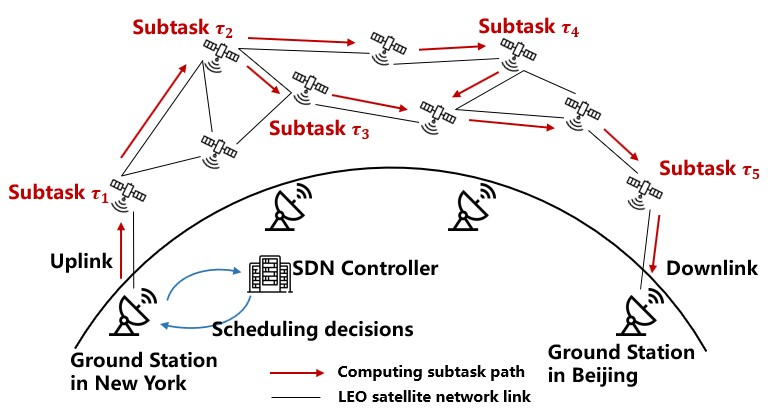Research progress on fine-grained task scheduling algorithms combining DDPG and path selection in LEO satellite networks

Scenarios for fine-grained task scheduling in LEO satellite networks
The Intelligent Arithmetic Scheduling team of CNIC's Advanced Networks Division has conducted research on a fine-grained task scheduling algorithm based on the Deep Deterministic Policy Gradient algorithm (DDPG-FTS), which divides a computational task into multiple sequentially related computational subtasks and uses a deep neural network to establish a mapping between the state of the environment of the LEO satellite network and the computational nodes of the subtasks.The DDPG-FTS treats the scheduling system as an intelligent body. The intelligent body obtains rewards for task scheduling actions by continuously interacting with the LEO satellite network environment, and in this way iteratively optimizes the intelligent body's policy network and evaluation network until convergence. Simultaneously. In order to adapt to the periodic change of ISL connectivity, the task path selection algorithm applicable to LEO satellite network is designed. When the DDPG-FTS algorithm completes the selection of sub-task computing nodes, the path selection algorithm can choose the optimal transmission path for the task among multiple satellite nodes. By sensing the connectivity of ISL and recognizing the characteristics of different tasks, the algorithm flexibly selects the transmission path that is most suitable for the current task, which can effectively reduce the path switching that occurs due to ISL disconnection during the task transmission process. The related research results have been published in the 22nd IEEE International Conference on Trust, Security and Privacy in Computing and Communications (TrustCom-2023).
For details, please contact ZHANG Gaowei (zhanggaowei@cnic.cn)
